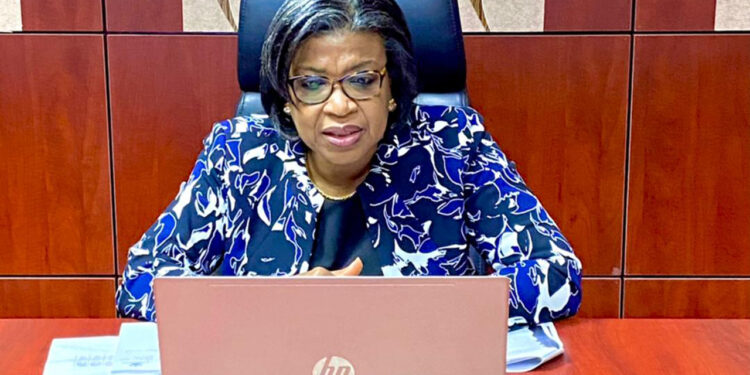Nigeria’s appetite for foreign loans has diminished, marking a significant shift in the latest data from the Debt Management Office (DMO). The nation’s total public debt has surged to N87.91 trillion by the end of September, with a marginal increase of 0.61% from the N87.38 trillion recorded at the close of the second quarter.
Contrary to the previous trend, the data revealed a substantial reduction in foreign debt stock. Total external debt stood at N31.98 trillion, while domestic debt amounted to N55.93 trillion during the reported period.
The DMO explained that the decrease in external debt was influenced by the redemption of a $500 million Eurobond and the payment of $413.859 million as the first principal payment of the $3.4 billion loan obtained from the International Monetary Fund in 2020 during the Covid-19 pandemic.
In the third quarter of 2023, the Federal Government spent $1.39 billion servicing external debt and N1.79 trillion on domestic debt servicing. Despite concerns about the country’s debt status, the DMO emphasized that the recent debt servicing demonstrates the government’s commitment to honoring its obligations.
Patience Oniha, the Director-General of the DMO, noted that high rates on blue-chip securities in global markets are due to elevated inflation rates in the West. Foreign investors, cautious due to global uncertainties, are favoring securities with triple A or double A ratings, offering higher returns.
While stability is gradually returning to these markets, Oniha highlighted that the Federal Government has focused more on the domestic market. In 2023, the government raised N7.04 trillion in new domestic borrowing, signaling a substantial increase compared to the N3.5 trillion of the previous year.
On the liquidity front, Oniha expressed encouragement, stating that the government expects to continue its engagement in the domestic market in 2024. However, revenue challenges persist, prompting discussions about the need for increased revenue to reduce reliance on borrowing.
Several government initiatives, including the presidential committee on fiscal reforms and taxes, aim to improve revenue generation. The Minister of Finance and Coordinating Minister for the Economy, Wale Edun, emphasized the necessity of enhancing revenue standing, stating that the country cannot solely rely on borrowing going forward.
Minister of Budget and Economic Planning, Abubakar Bagudu, reiterated the importance of addressing revenue challenges, stating, “Revenue generation remains the major fiscal constraint to Nigeria’s fiscal viability.” The government is reviewing tax and fiscal policies with the goal of increasing the ratio of revenue to GDP from less than 10 percent to 18 percent within the current administration’s term.









